Affiliate links on Android Authority may earn us a commission. Learn more.
Beats Solo 3 vs Beats Studio 3: What's the difference?
February 5, 2024

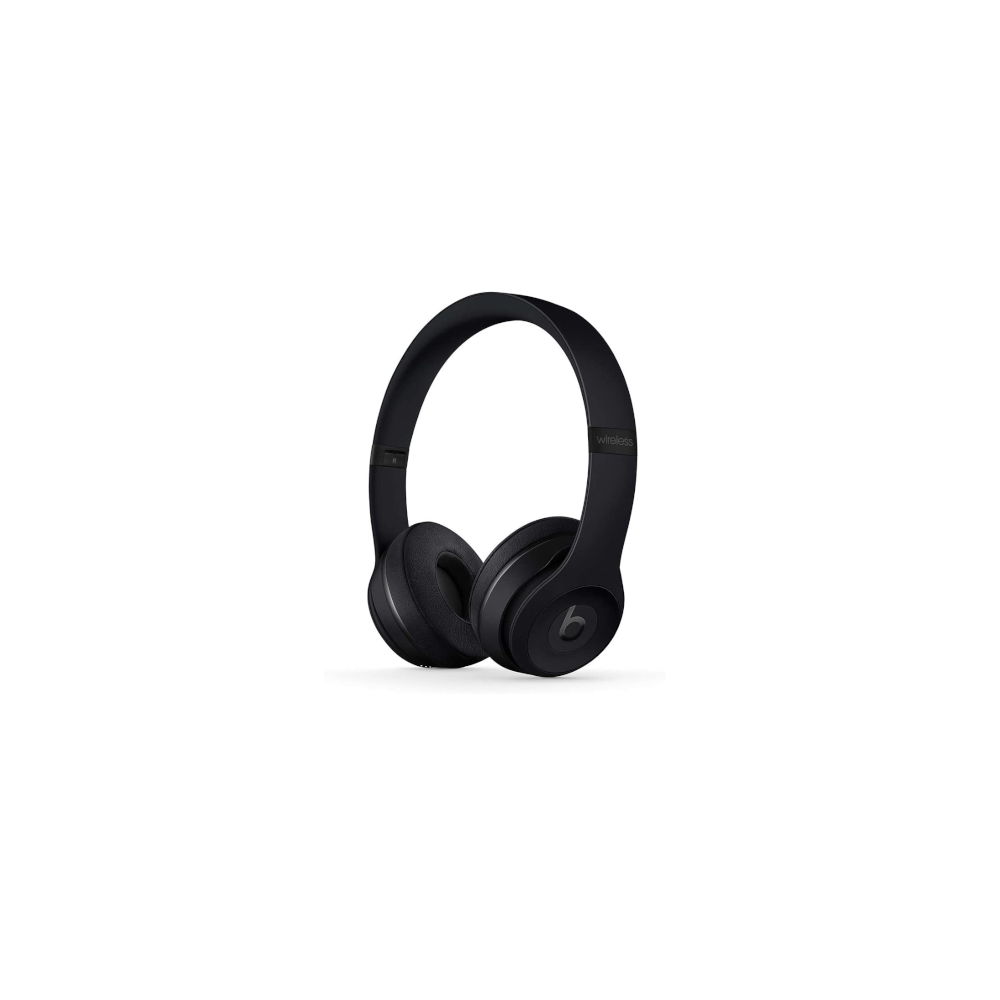
Neither the Beats Solo 3 nor the Beats Studio 3 are Apple’s most advanced headphones, but that’s actually part of their appeal these days — they’re a lot more affordable than something like the Beats Studio Pro or AirPods Max, so you won’t be as paranoid about losing or abusing them during travel or an intense workout. Which one should you actually buy in 2023 though, if either?
Beats Solo 3 vs Beats Studio 3: At a glance
- If you need or simply want active noise cancellation (ANC), you should automatically choose the Studio 3. The Solo 3 depends entirely on its earcups to isolate noise.
- The Studio 3 offers better natural isolation, too, using an over-the-ear cup design rather than on-ear.
- The Solo 3 does get superior battery life, up to about 45 hours.
- Both are outdated technically, being stuck with microUSB charging, Bluetooth 5.0, and an older Apple wireless chip. Many recent Android conveniences are missing.
- You'll get overall superior sound from the Studio 3.
Beats Solo 3 vs Beats Studio 3: Specs
| Beats Solo 3 | Beats Studio 3 | |
|---|---|---|
Dimensions and weight | Beats Solo 3 17.7 x 15.8 x 6.8cm 215g | Beats Studio 3 22.6 x 16 x 11.9cm 260g |
Water and dust resistance | Beats Solo 3 No IP rating | Beats Studio 3 No IP rating |
Fit type | Beats Solo 3 On-ear | Beats Studio 3 Over-ear |
Bluetooth | Beats Solo 3 Bluetooth 5.0 AAC | Beats Studio 3 Bluetooth 5.0 AAC and SBC |
Active noise cancellation | Beats Solo 3 No | Beats Studio 3 Yes |
Chipset | Beats Solo 3 Apple W1 | Beats Studio 3 Apple W1 |
Connectors | Beats Solo 3 microUSB, 3.5mm | Beats Studio 3 microUSB, 3.5mm |
Battery life | Beats Solo 3 Up to 45 hours (tested) | Beats Studio 3 Up to 22 hours w/ANC (claimed) Up to 22 hours w/o ANC (claimed) |
Beats Solo 3 vs Beats Studio 3: Design and features
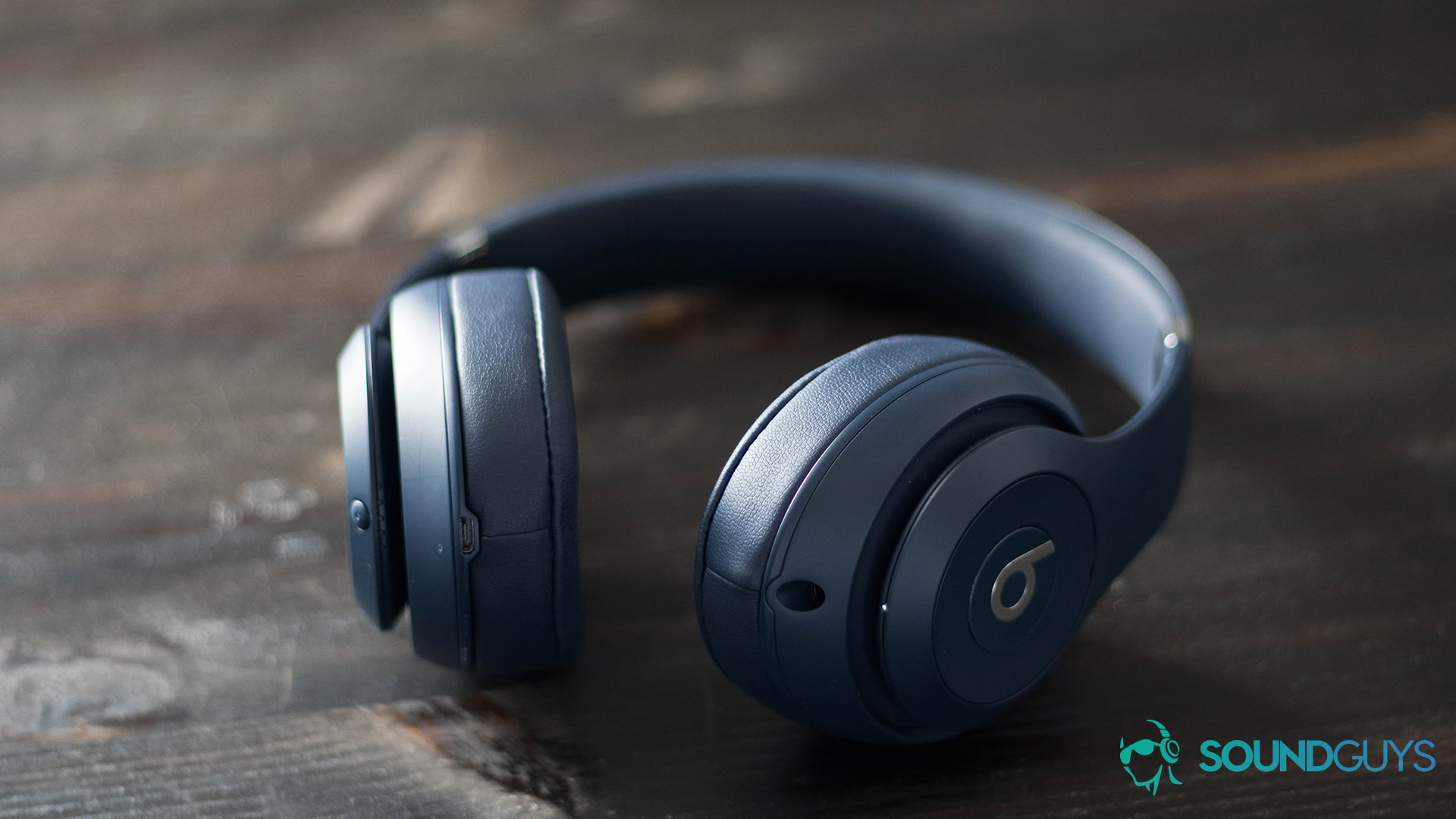
In many respects, the headsets are very similar to each other. They share the same overall Beats aesthetic, on-unit control via button presses on the B logo, and 3.5mm wired output as a fallback. Charging is handled via microUSB. We’ll cover both that and battery life in the next section.
There are some substantial differences to point out, the biggest being ANC (active noise cancellation). The Studio 3 (above) has ANC tech including a transparency mode, while the Solo 3 (below) doesn’t, giving the former a huge advantage in noisy environments like airplanes and city sidewalks. The only noise isolation the Solo 3 offers is its earcups, and even then the Studio 3 wins, since it uses an over-the-ear design rather than on-ear.
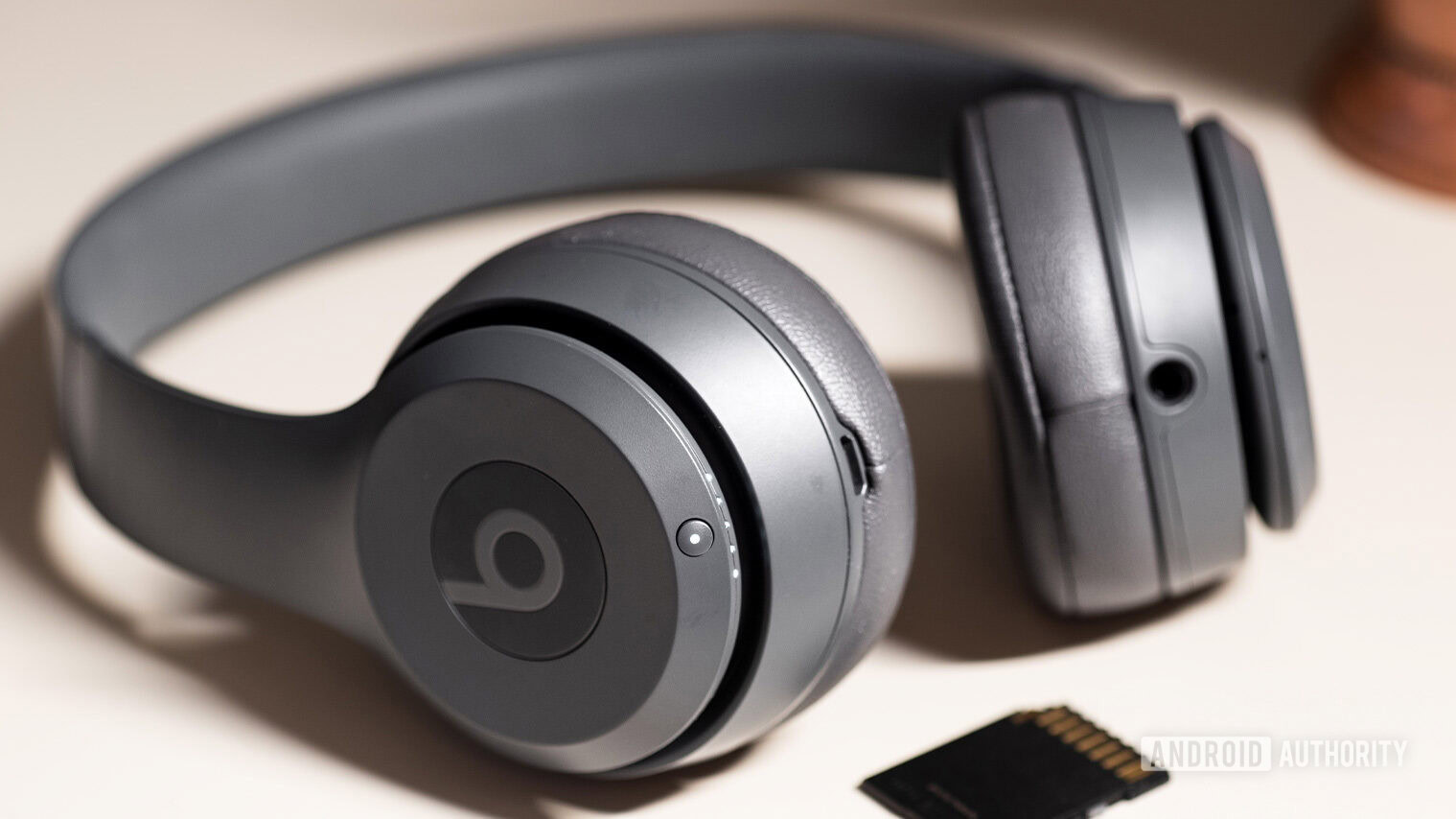
People tend to find over-the-ear headphones more comfortable and stable as well. You might still prefer the Solo 3 if you’ve tried other over-the-ear products and found your ears got too hot, too quickly, but we’ve seen plenty of Studio 3s at weightlifting gyms, so your mileage may vary.
Either product can be paired with Android or Apple devices, and should work well enough regardless of platform. Apple users do however get to take advantage of the headphones’ W1 chip, which enables rapid pairing not just with a single Bluetooth device, but anything tied to your Apple ID. It also means fast switching, so your headphones should flip from your Mac to your iPhone without any effort. There’s no Android Fast Pair or Audio Switch compatibility.
We should note that neither product has an IP rating for sweat, dust, or water resistance, so if you wear them at the gym or in the rain, you’re taking a risk. They also lack Apple’s newer H1 or H2 chips, so you won’t get features like spatial audio, Adaptive Audio, or the ability to trigger Siri simply by saying its wake word.
The Studio 3 has superior audio quality, which you’d hope for given its original $350 launch pricetag. Expect a strong emphasis on bass with either product, to the point that other frequency ranges can suffer. Like most Beats models these headphones are really meant for pop, rap, hip-hop, and EDM, not genres like ambient, classical, or rock. Which isn’t to say music will sound bad outside of the target range, just that you’ll miss out on the nuances other headsets might capture.
Beats Solo 3 vs Beats Studio 3: Battery life and charging
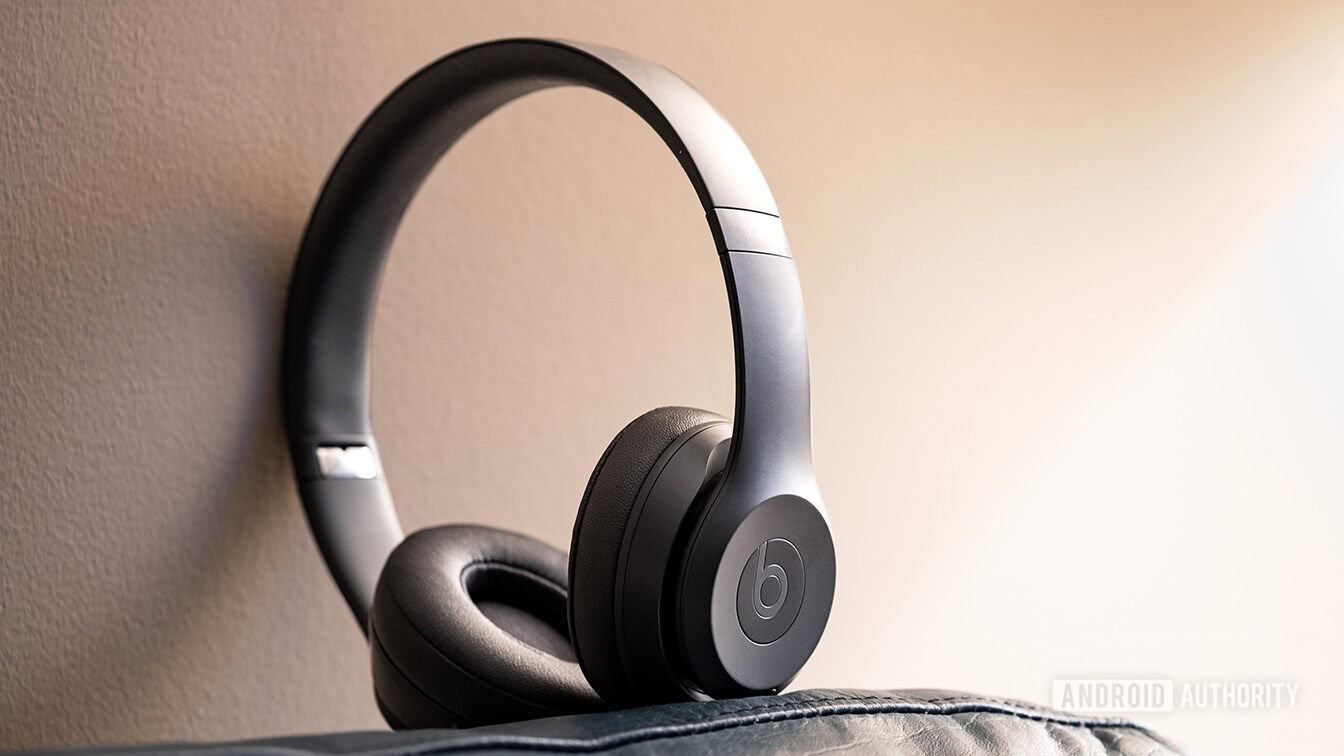
This is the one area where the Solo 3 takes the lead. In our review testing, the Solo 3 lasted 45 hours and 8 minutes, which even in 2024 remains an impressive figure relative to price. If having headphones that can last all week on a single charge takes a higher priority over anything else, this is the Beats product to get, since it tops even the Studio Pro.
The Studio 3 can theoretically last up to 40 hours with ANC off, but of course, you’re likely to leave the feature on for maximum sound quality unless you’re in a quiet space. Apple claims up to 22 hours of runtime with ANC on and a reasonable volume level. Our own testing clocked 10 hours, 12 minutes with ANC, but that was at 100% volume, when in reality most people are going to stick between 40 and 80%.
Being older Beats offerings, both headphones rely on microUSB for charging. That’s inherently less convenient than USB-C or Qi wireless, but they do at least offer the brand’s Fast Fuel technology, which can get you 3 hours of playback after 5 minutes of charging on the Solo 3, or 10 minutes of charging on the Studio 3.
Beats Solo 3 vs Beats Studio 3: Price and availability
Beats Solo 3: $199.95 (before discounts)
Beats Studio 3: $252.99 (before discounts)
We’ve got some important things to say on this topic. While Apple is still selling the Solo 3 as a “new” product for its original $199.95, it first shipped in September 2016, so you definitely shouldn’t pay that price in 2024. As of this writing you can get a pair for $114.95 on Amazon, or even cheaper for something used.
Apple no longer sells the Studio 3, which makes sense given that it wants people to buy the 2023 update of the Studio Pro. As a result you can get it for $169 or less from third-party vendors.
With both products, you may need to pay more than usual to get your color of choice if you’re not buying from Apple. In fact there’s a rare Mickey Mouse version of the Solo 3 that sells for $349.95, which isn’t worth it unless you’re a diehard Disney collector.
Beats Solo 3 vs Beats Studio 3: Which should you buy?
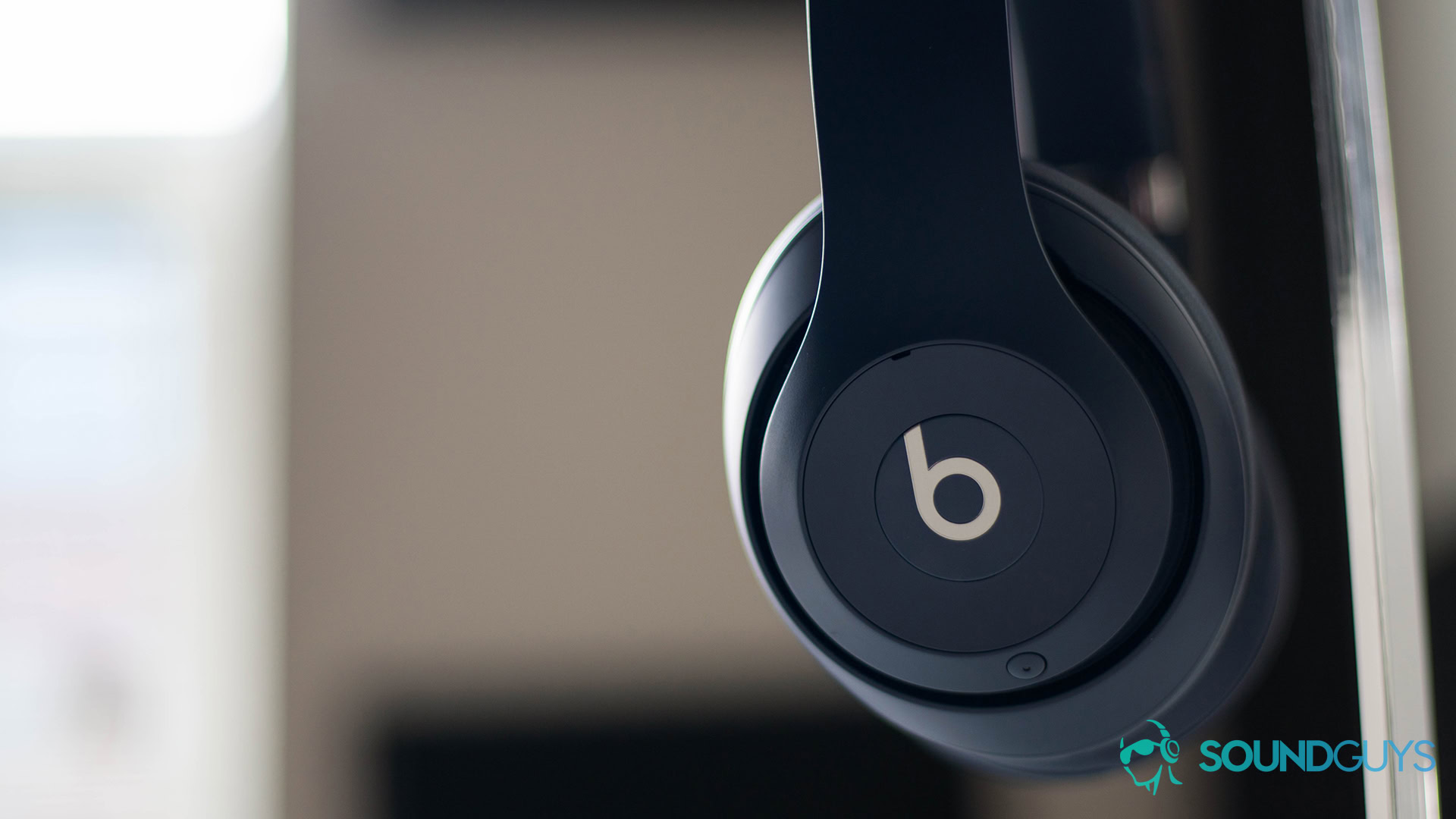
For most people, if you’re going to buy older Beats at all, we’d strongly suggest the Studio 3. They’re more expensive than the Solo 3, but you’ll be happier with their fit and audio quality, especially given the presence of ANC. That technology is increasingly de facto on modern headphones with good reason — once you hear it in action, you never want to go back. It can deliver clean sound in situations that would otherwise be drowned out.
That said if you can get the Solo 3 for under $100, it’s not a bad budget option for wireless, especially if you’re pairing with an Apple device. That’s cheaper than a fresh set of AirPods, and you’ll get better bass.
The real question, ultimately, is whether you should be looking at either product in 2024, especially if you’re an Android user. You can probably buy newer, technically superior headphones for less from brands like Anker, AKG, and Audio-Technica, and Beats headphones aren’t the fashion statement they once were. Even Apple users may want to hunt elsewhere if they can find products with multipoint Bluetooth pairing.
If you're looking for budget Beats, would you pick the Solo 3 or Studio 3?
Beats Solo 3 vs Beats Studio 3: FAQ
No. Both headphones lack any kind of IP rating. They shouldn’t instantly disintegrate when exposed to water, but they could easily break if water seeps into their electronics.
The Studio 3 has active noise cancellation, include a transparency mode, but the Solo 3 lacks any kind of ANC feature.
Yes, both products have microphones for voice/video calls and interacting with voice assistants.
Despite their popularity at gyms, not really. Neither has an IP rating. The only thing preventing sweat from shorting them out is the design gap between the circuitry and your skin. We recommend headphones with an IPX4 rating or better, ideally IP57 or IP68.
On top of that they have relatively fragile plastic frames, and some people find that anything except earbuds can make their heads uncomfortably hot, especially in climates like Texas or Florida. You’ll also need to cinch your headband tight to prevent things from jostling around, no matter if you’re running or doing a hanging crunch.